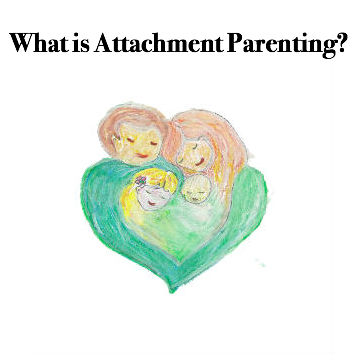Could Severe Tantrums be a problem?
Severe
Tantrums worry parents. They are not sure what is considered as normal
tantrum, when is the meltdown too long or happens too often? What’s too
extreme? When to ask for help?
|
Understanding Severe Tantrums
Tantrum styles
Have you ever seen a child throwing severe tantrums?
Well, it involves a lot of this:
|
|
|
According to the research there are 5 high risk tantrum styles:
Aggressive tantrums.
- Occur when the child becomes aggressive towards parent,
- tries to break
toys.
- This child might have ADHD (oppositional-defiant disorder).
- Depressed children may also have a pattern of aggressive tantrums.
Self-injurious tantrums.
- Involve scratching himself till the skin is bleeding,
- head-banging towards hard
surfaces, biting himself.
- These tantrums are dangerous to child’s
health so it should be addressed right away no matter how long the
tantrums last of how often they happen.
- In this study, they were almost always associated with a psychiatric diagnosis.
Frequent tantrums.
- If a child has 10 separate tantrums on a single day you might just say ‘it was a bad day’, but if this happens more than once in 1 month, the child should be checked for disorders.
- More than 5 separate tantrums a day on multiple days at school it should also be an alert. In this study, when tantrums occurred at school, or outside of home or school, more than 5 times a day on multiple days, there was a higher risk of ADHD and other disruptive disorders.
|
Prolonged tantrums.
|
It is OK for toddlers and preschoolers to have severe tantrums sometimes. Paying attention to tantrum styles rather than individual tantrums should help understand what's healthy and normal and what's not. |
Tantrums requiring external help.
- If a child needs some extra help from you to calm down and to recover
from a tantrum he is at higher risk of ADHD no matter how frequent the
tantrums were or how long they lasted.
- Speaking calmly to your child in the midst of a tantrum, or acting reassuringly, is normal. But if you find you can’t stop a tantrum without giving in or offering a bribe, stay alert. By age 3, kids should be learning how to calm themselves.
Dealing with Severe Tantrums
It is understandable that severe tantrums could be very disruptive to a regular family life. They cause a lot of stress to you and your child.
If you find it difficult to stay calm during your child’s tantrums and you worry that you might react to the severe tantrums little different that you would like to (hurt your child, become very angry) then read these tips to better deal with severe tantrums.
1. Find out when does your child throw tantrums. Is it when you go grocery shopping? Or is it when your child spends more than 15 minutes in the car? Try to avoid these situations or at least make them less stressful for a child.
2. What are the triggers for your child’s tantrums? There can be many things that triggers your child’s behavior.
While you don’t have a magic wand and cannot make all of the triggers disappear, you can still help your toddler deal with them.
|
The most common triggers are: a. When you say ‘no’ b. When your child is asked to do something (like cleaning his room) c. When a child is frustrated over not being able to do certain activities d. Tired, hungry, hyper from all the sugar e. Overwhelmed by new things |
3. Reward for good behavior. Notice when he manages to stay calm and not to start a fit. Praise him with words or you can have the whole reward system with the stickers or some symbolic prizes.
4. Keep a diary of your child’s tantrums for 7 days. Record the day of the tantrum, where it happened, what happened just before it, and what happened right afterwards. Use this table as an example:
* Research suggests that kids learn better self-control when their parents talk about feelings, how other people feel.
* Conversations or certain games can help children to practice how to follow rules and regulate their emotions better.
When to call a doctor?
How to know when tantrum is normal and when it is leading to mental illness and needs to be treated?
Recent research developed easy-to-administer
questionnaire - the Multidimensional Assessment of Preschool Disruptive
Behavior (MAP-DB). This helped to distinguish normal meltdown-tantrum
from more severe tantrum.
The researchers provided parents (of 1.500 kids age 3-5) with a questionnaire.
The questions were about frequency, quality and the severity of temper tantrum and anger management abilities over 1 month period.
The results helped to understand the line between normal children and those at risk of developing mental disorders in the future.
|
According to the research: 80% of preschoolers had one or more tantrums in 1 month. Less than 10% had tantrums every day. |
Normal tantrum is when a child is tired, frustrated or bothered by the triggers parents can figure out. Severe tantrum may happen 'out of nowhere', parents cannot understand why child is so upset. In many cases, child gets so frustrated, he becomes exhausted from a meltdown. |
Severe tantrums can happen to quite many children from time to time, but you have to watch out and make sure they are not regular.
Thanks to this research, it will be easier now to recognize mental disorder early on in child's life. That way proper treatments can be done to avoid serious illness later in life.
Consult your doctor when:
|
Regular tantrums shouldn't last more then 10 minutes. |
Doctor could also examine child's hearing, vision problems, chronic illness, language delays and learning disability. These problems could cause tantrums.
Keep in mind, that tantrums are most of the time just a part of child's development and they usually stop on their own by age 5.
As they grow up, they learn (from you) how to deal with life's frustrations and disappointments, which leads to:
Less Frustration + More Control = Less Tantrums -------> Happier Families
Like This Page?
|
|
Let Google know about it |











